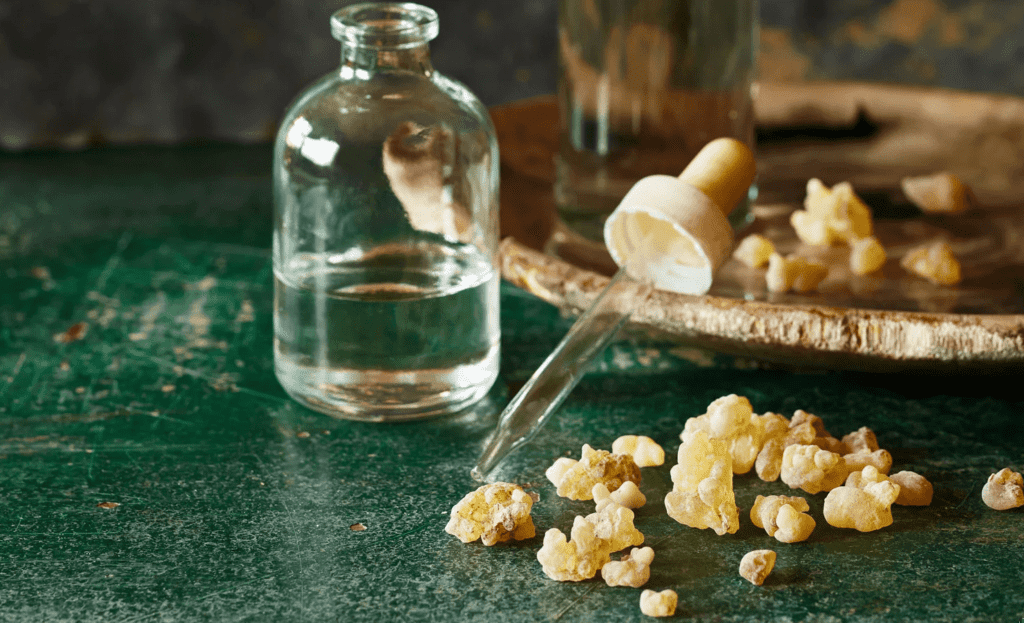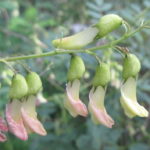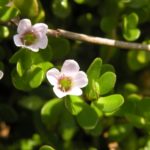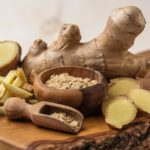
Megan Rodden
(BCS, DipNat, MedHerb, NMHNZ)
Note — The article was checked and updated March 2023.
Today many of us too often reach for over-the-counter painkillers or non-steroidal anti-inflammatory drugs, without knowing the potential hazards of continuous use.
Boswellia serrata is a natural pain reliever that can assist with issues from headaches to health problems such as
- Arthritis
- Asthma
- Cancer (inhibition)
- Female hormonal health
- Swellings
and several other conditions, which we have covered in the following sections.
Introduction
Boswellia serrata is a herb known for its anti-inflammatory and pain relieving properties, commonly prescribed by herbalists for arthritis and joint health.
A medium deciduous tree, Boswellia belongs to the Buseraceae family and is native to India and Africa, producing a gum resin that is used to make frankincense and herbal remedies.
Other names
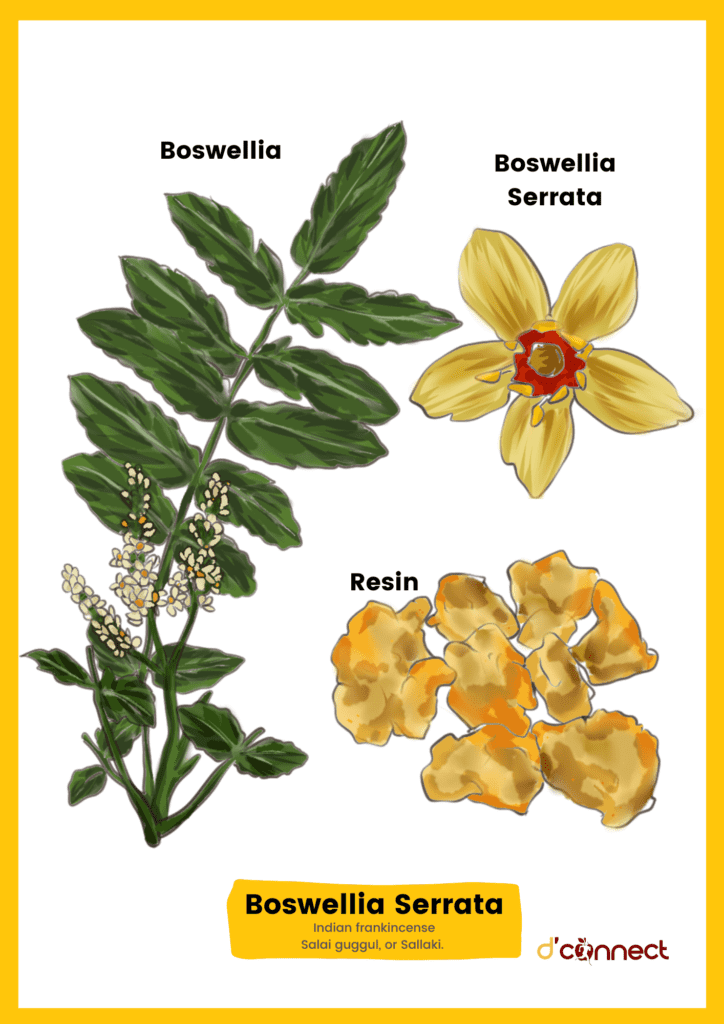
- Boswellia glabra
- Indian frankincense
- Indian olibanum
- Salai guggul (Hindi)
- Sallaki (Sanskrit)
- Salaibaum (German)
Characteristics
The name Serrata comes from the word serra, which means “a saw” and refers to the Boswellia leaves having serrated or saw toothed edges.
The flowers are white with five to seven petals but the plant’s signature fragrance comes from the Boswellia resin and is known widely as frankincense, a relative of the plant referred to in the Bible.
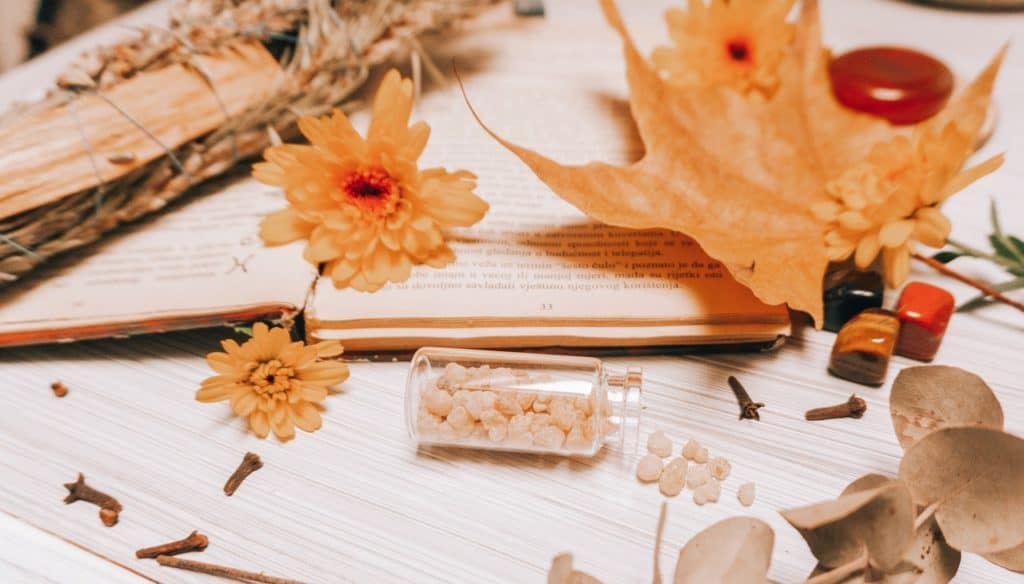
Boswellia resin is also known as frankincense
Boswellia has a thin, ash-green coloured bark that can be cut to extract the resin.
Use
Boswellia has a number of uses both traditionally and in modern medicine.
As an oral supplement, it assists with different health conditions and can be used topically for different skin ailments and healing. Boswellia is also an important plant and herb in different cultures.
Traditional use
Boswellia can be traced back to ancient times, when it was used for medicinal purposes but also religious and cultural ceremonies, as a perfume and even embalming fluid.
The burning of the resin was believed to have spiritual actions, assisting the soul and warding off dark entities.[1]
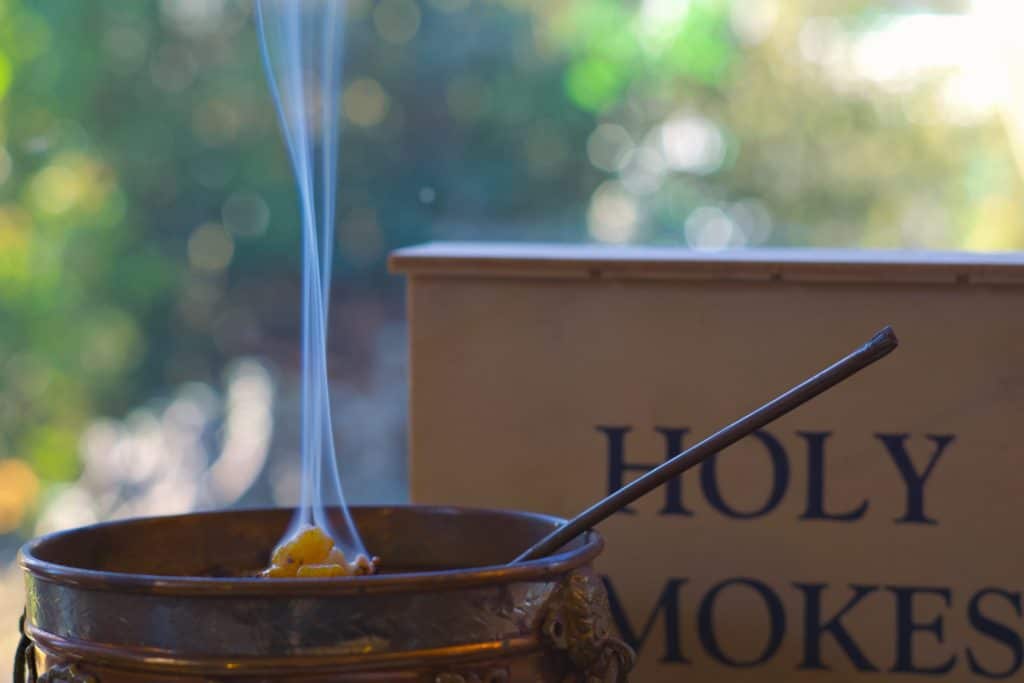
Boswellia also has a long history of use in traditional Ayurvedic practice, which we discuss in more detail in the following section.
RELATED — Introduction to Ayurveda: Ancient medicinal healing methods
Medicinal use
As an anti-inflammatory and anti-arthritic medicine, Boswellia is also used as an expectorant for coughs.
Boswellia taken by mouth can help with
- Osteoarthritis
- Rheumatoid arthritis
- Joint pain and swelling
- Immune support
- Asthma
- Menstrual pain
- Brain injury and brain swelling
Boswellia is also applied topically to skin to reduce redness, pain and swelling and is used as a general anti-inflammatory.
Health benefits
The main health benefit of Boswellia comes from its ability to reduce inflammation (pain and swelling), which is at the root of many chronic illnesses.
Unlike other treatments, such as non-steroidal anti-inflammatories, Boswellia does not cause problems like stomach ulcers.
Boswellia has numerous potential medicinal uses mainly due to the active triterpenoid component called boswellic acids, which has been the focus of most research on the plant.
Boswellia and effects on osteoarthritis
A number of studies have shown that Boswellia may be effective and safe to help with pain and movement in osteoarthritis.[2,3]
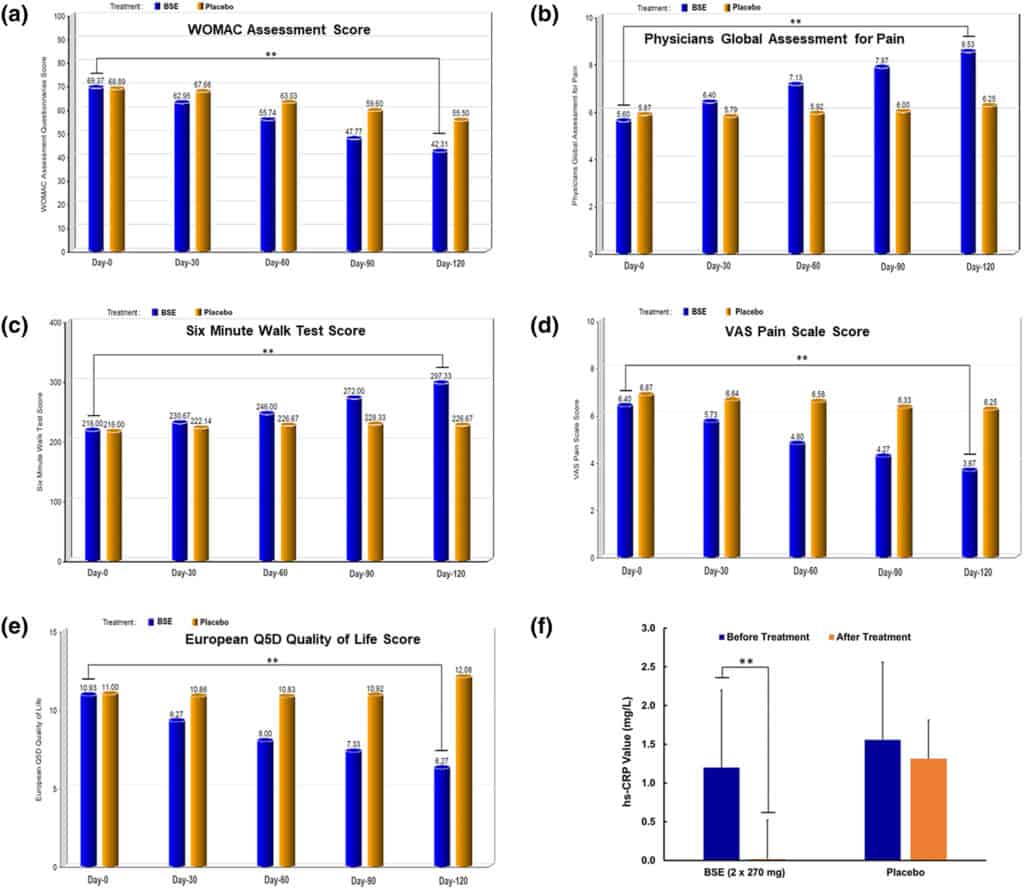
Boswellia and immune support for asthma
Boswellia may benefit chronic asthma, providing both anti-allergic and anti-inflammatory effects.
One study showed improvement in 70% of patients after 6 weeks of treatment.[5] Boswellia also has been proven to have a beneficial effect on stabilising cells that are involved in immune and allergic responses, such as mast cells.[6]
Boswellia and help with inflammatory bowel diseases
Disorders linked to inflammation such as
- Lupus
- Psoriasis
- Cystic fibrosis
- Multiple sclerosis
have shown through lab studies that boswellic acids alter elevated cells involved in inflammatory responses. However, more clinical research is needed.[4]
RELATED — Let’s talk about Multiple sclerosis
Research has shown that Boswellia is as effective as other conventional medication to manage symptoms of chronic colitis.
One study compared Boswellia to the treatment sulfasalazine in people with symptoms such as
- abdominal pain
- diarrhoea
- bleeding
and found Boswellia to have measurable improvements with minimal side effects, which were longer lasting.[7]
Bowellia and support with female hormone conditions
Boswellia has been used traditionally to support women’s hormonal conditions and research has found that it has the capacity to be effective in reducing pain and inflammation.
A number of studies have proven the anti-inflammatory actions, including the positive effect of Boswellia on cells involved in inflammation of the female reproductive system.[7]
Boswellia can support hormonal conditions
Inflammation is an underlying factor for
- Primary dysmenorrhea (painful periods)
- Fibroids
- Endometriosis.[8]
Brain tumours and Boswellia
Boswellia has been used to treat swellings that occur with brain tumours.
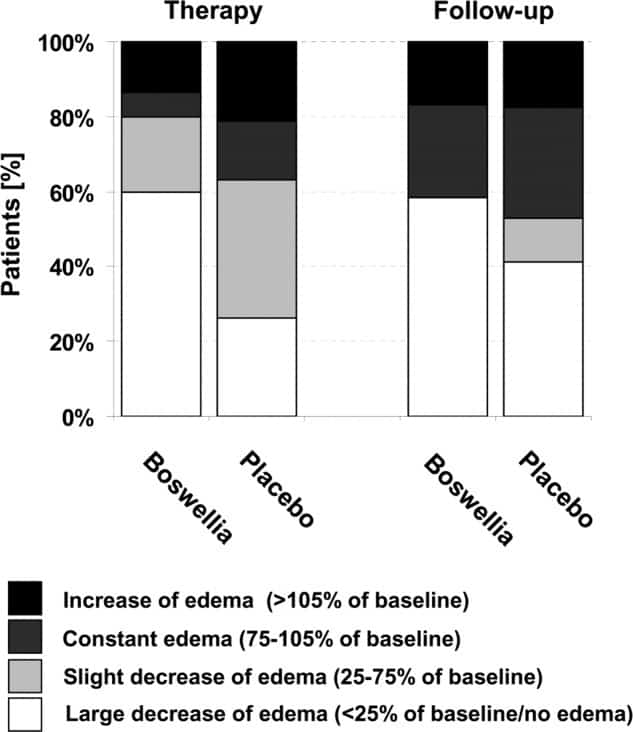
Source: S., Kirste. Boswellia serrata acts on cerebral edema in patients irradiated for brain tumors. (2011)
One pilot clinical trial showed the potential for Boswellia to be used to reduce swelling in patients with brain tumours after receiving radiotherapy, but this is an area of ongoing research.[9]
Therapeutic dosage
The recommended dosage is between 200mg and 400mg three times daily, based on successful trials. Doses, however, should always be adjusted for height, weight, age and constitution and this is why it is always best to seek a herbal prescription from a trained professional.
Safety concerns
Boswellia is generally well tolerated in most individuals when it is taken orally within the recommended dosage.
Adverse reactions
Boswellia resin has been known to cause an occasional allergic reaction, such as skin irritation (contact dermatitis), however the reporting of this is rare.
Mild diarrhoea and abdominal discomfort occasionally occurs as well, and people with gastritis or reflux (GERD) may need to avoid Boswellia if it aggravates symptoms. However, this is often resolved with dosage adjustments.
Possible interactions with medications
No interactions have officially been reported, however theoretically Boswellia may interact with medications that are metabolised by CYP enzymes (cytochromes P450) and medications that are used to thin the blood.
Laboratory studies have shown Boswellia can theoretically inhibit these enzymes, which could alter the amount of medication the body breaks down and receives.
Common examples of these medicines include
- Antibiotics
- Antidepressants
- Proton pump inhibitors (such as omeprazole)
- Anxiety medication (such as Valium or diazepam)[10]
Caution is advised when you are taking any medication. Before taking any herbal supplement always consult a trained professional.
Possible interactions with herbs and supplements
There are no known negative interactions with other herbs or supplements and Boswellia.
The main interactions are potentially beneficial where a number of herb and mineral combinations have been effective in treating osteoarthritis.
Studies have combined Boswellia with Ashwagandha (Withania), Turmeric and Zinc to effectively reduce pain and disability in osteoarthritis and rheumatoid arthritis.[10]
RELATED — Ashwagandha (Withania somnifera)
RELATED — Turmeric (Curcuma longa)
Tips
Boswellia supplements are mainly found in tablet form and are often combined with other herbs and minerals, like turmeric and zinc, targeted at conditions such as arthritis and asthma.
RELATED — Zinc (for immunity, skin health and libido)
Some Boswellia supplements contain standardised extract and this means that the herb has been processed and analysed to contain a higher, consistent amount of the active compounds – boswellic acids.
A good quality Boswellia product should ideally have the following:
- A purity guarantee from the manufacturer – to ensure that the extract is only from Boswellia serrata and not from similar plants that may have different or unknown effects
- No genetic modifications to the plant
- No artificial fillers, colours, artificial preservatives and no sugars
- Proven to be sustainably and ethically sourced.
In order to safely take herbal supplements, such as Boswellia, it is best to seek a prescription from a trained herbalist, who can assess your unique health situation.
Summary
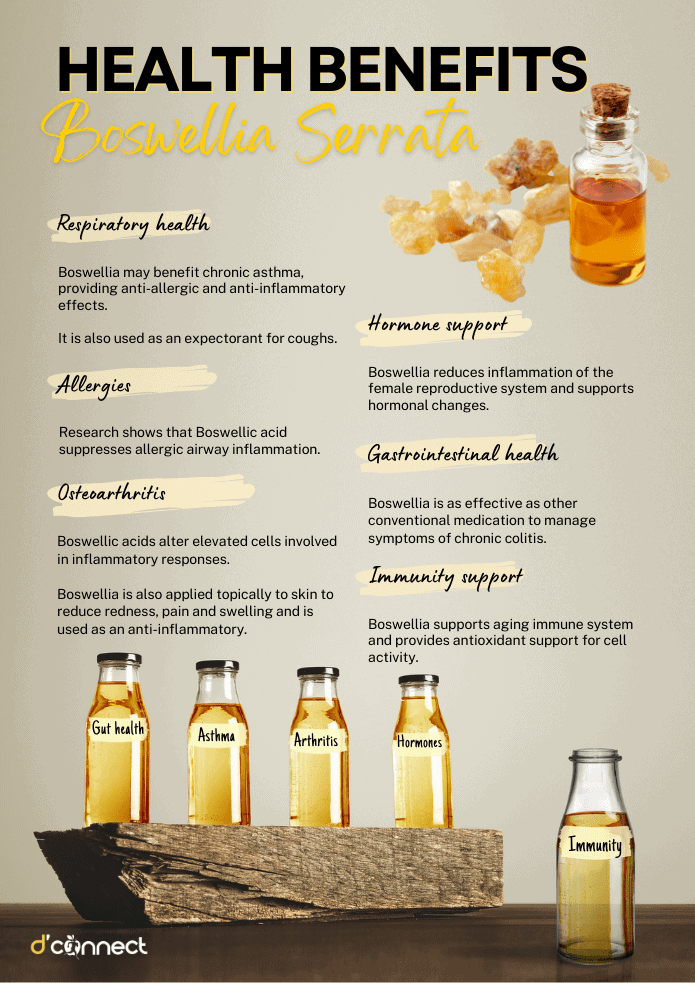
Note — feel free to share or download this illustration.
Related Questions
1. Who should not take Boswellia?
Caution is advised for pregnant and breastfeeding women due to limited studies.
2. What are the top 3 side-effects when taking Boswellia?
Contact dermatitis can occur in sensitive people when applying Boswellia topically. Oral application may cause an allergic reaction in those sensitive to Myrrh.
Cases of urticaria (allergic skin reaction involving red, itchy wheels) were reported in a Boswellia trial for osteoarthritis.
Gastrointestinal upset such as mild diarrhoea and temporary gastric upset have also been reported in certain cases.
3. How fast can I expect for Boswellia to work?
The effects of Boswellia for pain and swelling have been noted from as early as 7 days with significant improvement in chronic inflammation within one month.[10]
If you liked this article, and find yourself enjoying our series on herbs, please check for more similar articles in our Natural Medicine section.
Megan is a qualified, registered naturopath and medical herbalist based in Laingholm, Auckland. She is also a trained journalist with a bachelor’s degree in communication studies and a mother of two, with a passion for plant medicine and holistic nutrition.
A personal health journey has directed Megan to develop a specific interest in digestive and respiratory health, allergies, autoimmune conditions and children’s wellness. You can find more about Megan and her practice at Megan Rodden – Naturopath.
References
(1) Siddiqui M. Z. (2011). Boswellia serrata, a potential antiinflammatory agent: An overview. Indian journal of pharmaceutical sciences, 73(3), 255–261. Retrieved from https://www.researchgate.net/publication/223137254_Boswellia_Serrata_A_Potential_Antiinflammatory_Agent_An_Overview
(2) Yu G. Xiang, W. Zhang, T. Zeng, L. Yang, K. Li J. (2020) Effectiveness of Boswellia and Boswellia extract for osteoarthritis patients: a systematic review and meta-analysis. BMC Complement Med Ther. Jul 17;20(1):225. Retrieved from https://bmccomplementmedtherapies.biomedcentral.com/articles/10.1186/s12906-020-02985-6
(3) Therapeutic Research Centre. (2022). Natural Medicines Database.
(4) Ammon H.P., Mack T., Singh G.B., Safayhi H. (1991) Inhibition of leukotriene B4 formation in rat peritoneal neutrophils by an ethanolic extract of the gum resin exudate of Boswellia serrata. Planta Med. Jun;57(3):203-7. Retrieved from https://pubmed.ncbi.nlm.nih.gov/1654575/
(5) Gupta I., Gupta V., Parihar A., Gupta S., Lüdtke R., Safayhi H., Ammon H.P. (1998). Effects of Boswellia serrata gum resin in patients with bronchial asthma: results of a double-blind, placebo-controlled, 6-week clinical study. Eur J Med Res. Nov 17;3(11):511-4. PMID: 9810030.
(6) Gupta I., Parihar A., Malhotra P., Gupta S., Lüdtke R., Safayhi H., Ammon HP. (2001). Effects of gum resin of Boswellia serrata in patients with chronic colitis. Planta Med. Jul;67(5):391-5. doi: 10.1055/s-2001-15802. PMID: 11488449. Retrieved from https://pubmed.ncbi.nlm.nih.gov/11488449/
(7) Safayhi ., Sailer ER., Ammon HP. (1995). Mechanism of 5-lipoxygenase inhibition by acetyl-11-keto-beta-boswellic acid. Mol Pharmacol. Jun;47(6):1212-6. PMID: 7603462. Retrieved from https://pubmed.ncbi.nlm.nih.gov/11488449/
(8) Sabinsa. (2022). Human Leukocyte Elastase Inhibition. Retrieved from http://www.boswellin.com
(9) Kirste S., Treier M., Wehrle SJ., Becker G., Abdel-Tawab M., Gerbeth K., Hug MJ, Lubrich B., Grosu AL. Momm F. (2011). Boswellia serrata acts on cerebral edema in patients irradiated for brain tumours: a prospective, randomized, placebo-controlled, double-blind pilot trial. Cancer. Aug 15;117(16):3788-95. doi: 10.1002/cncr.25945. Epub 2011 Feb 1. PMID: 21287538. Retrieved from https://acsjournals.onlinelibrary.wiley.com/doi/full/10.1002/cncr.25945
(10) Therapeutic Research Centre. (2022). Boswellia Serrata.

